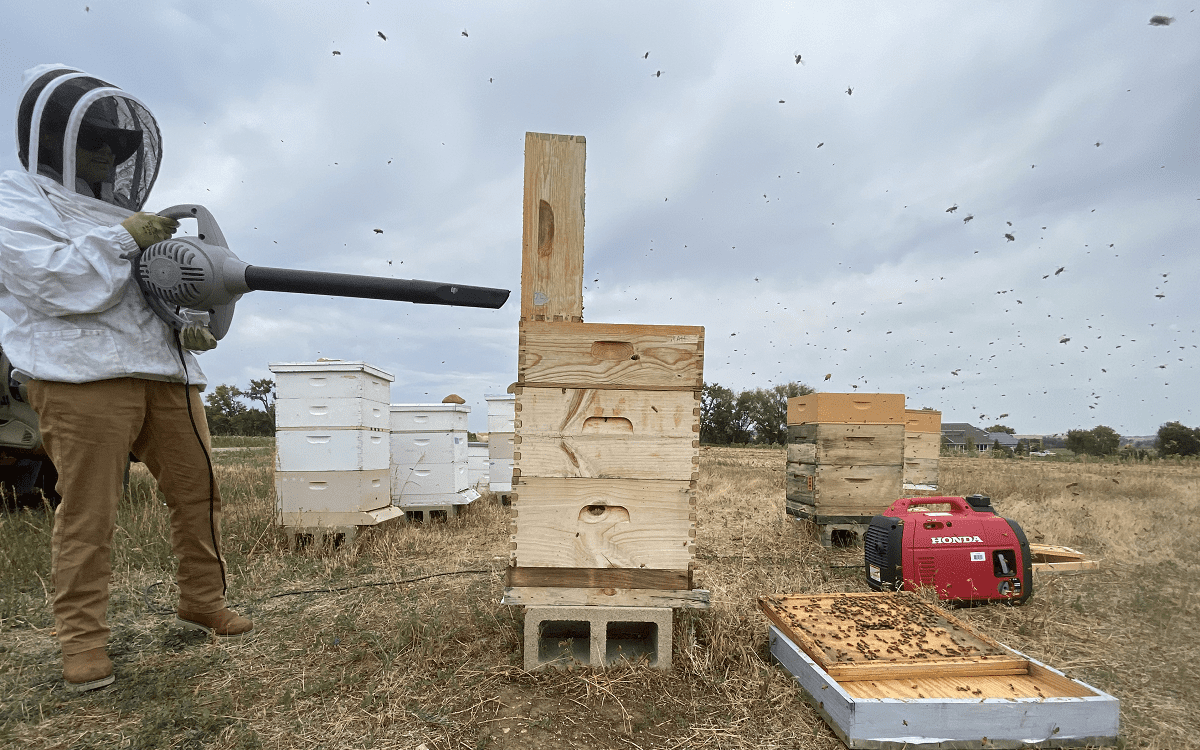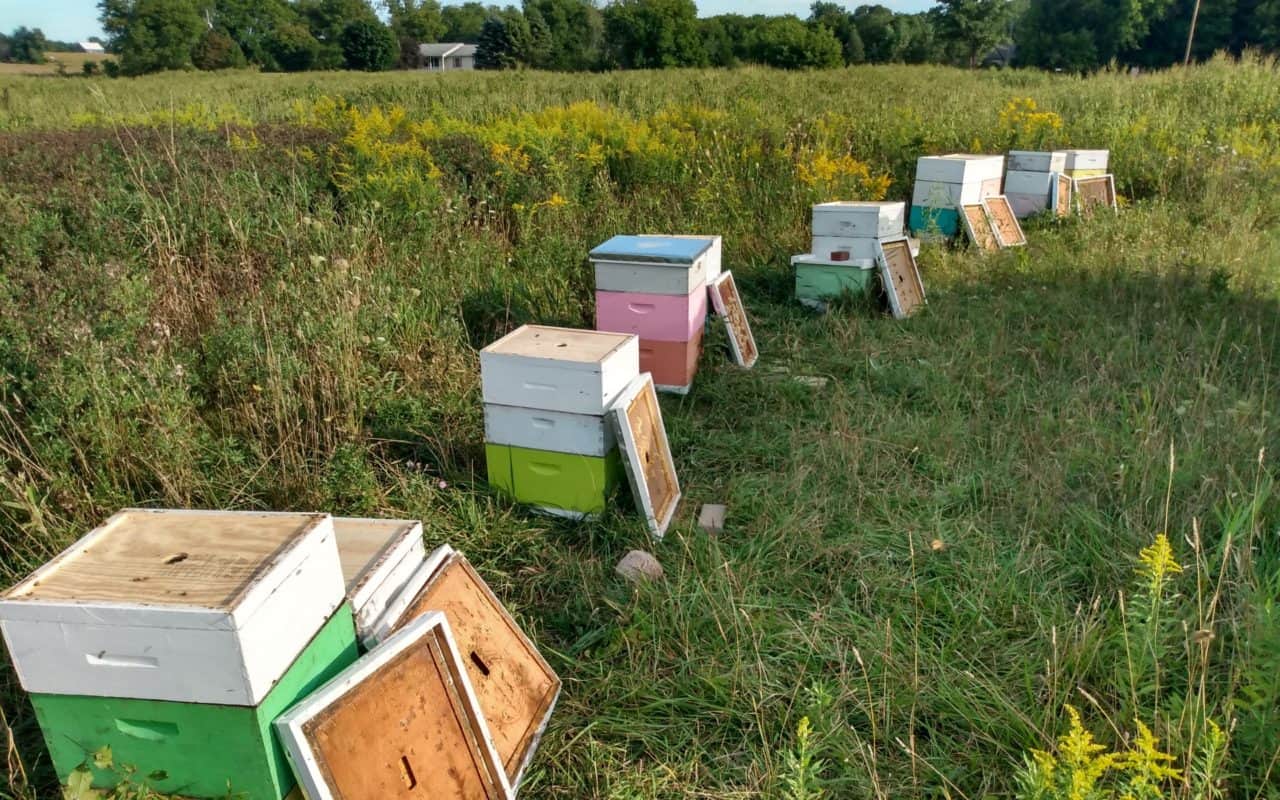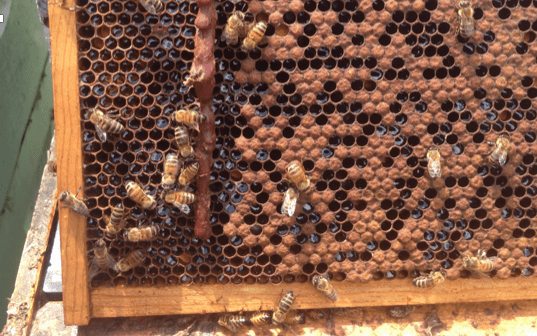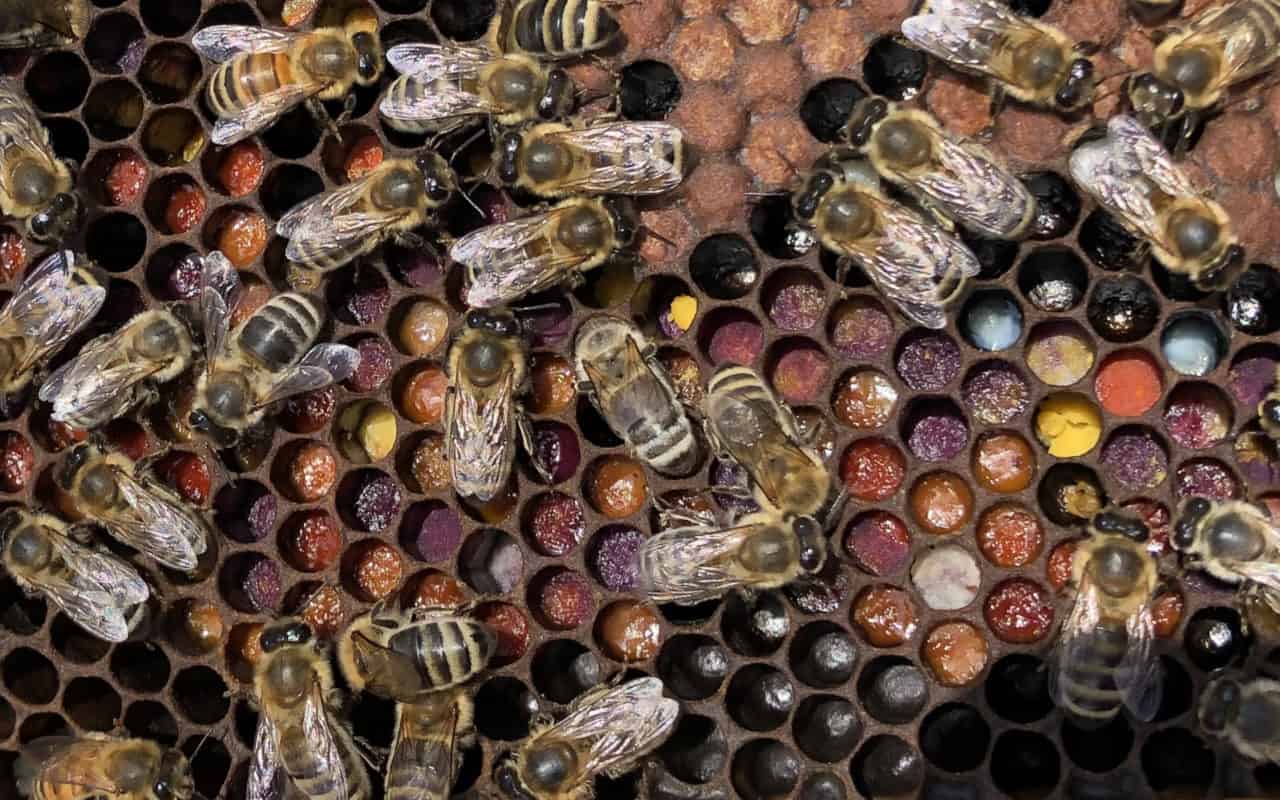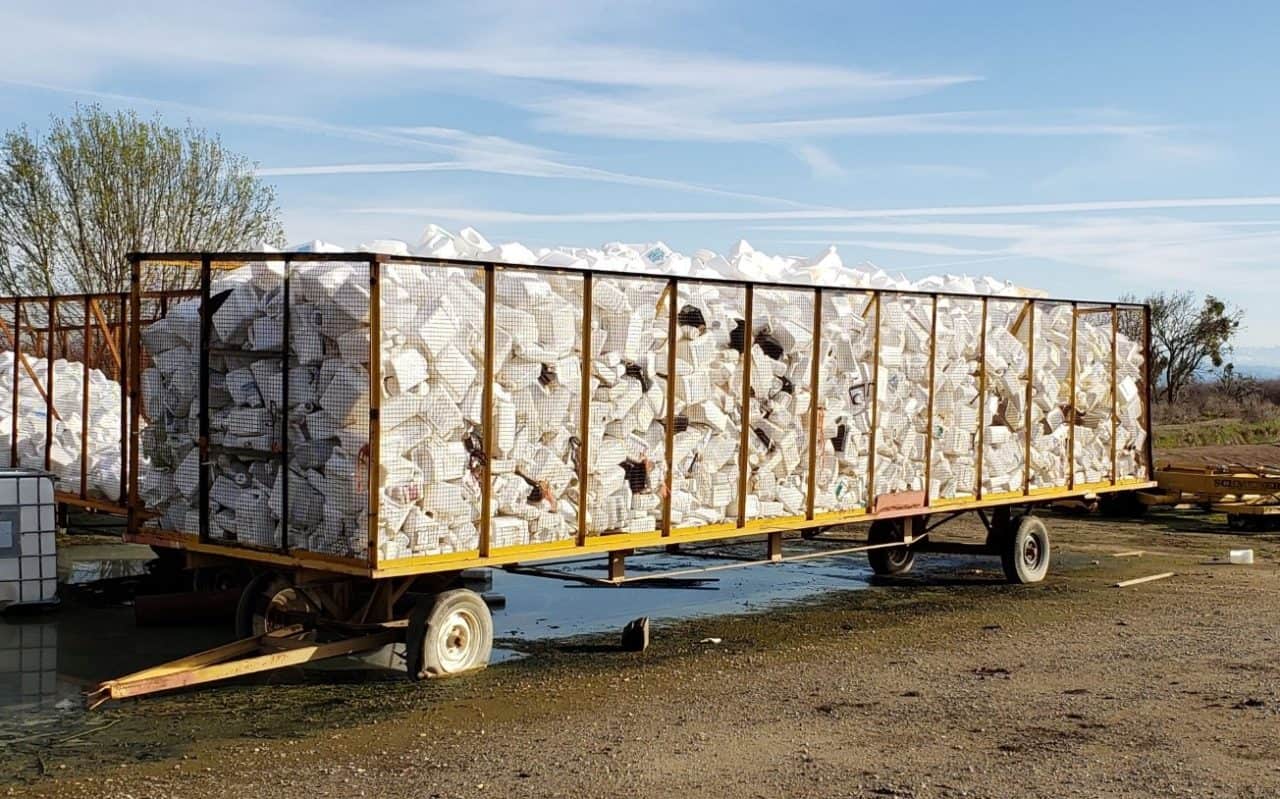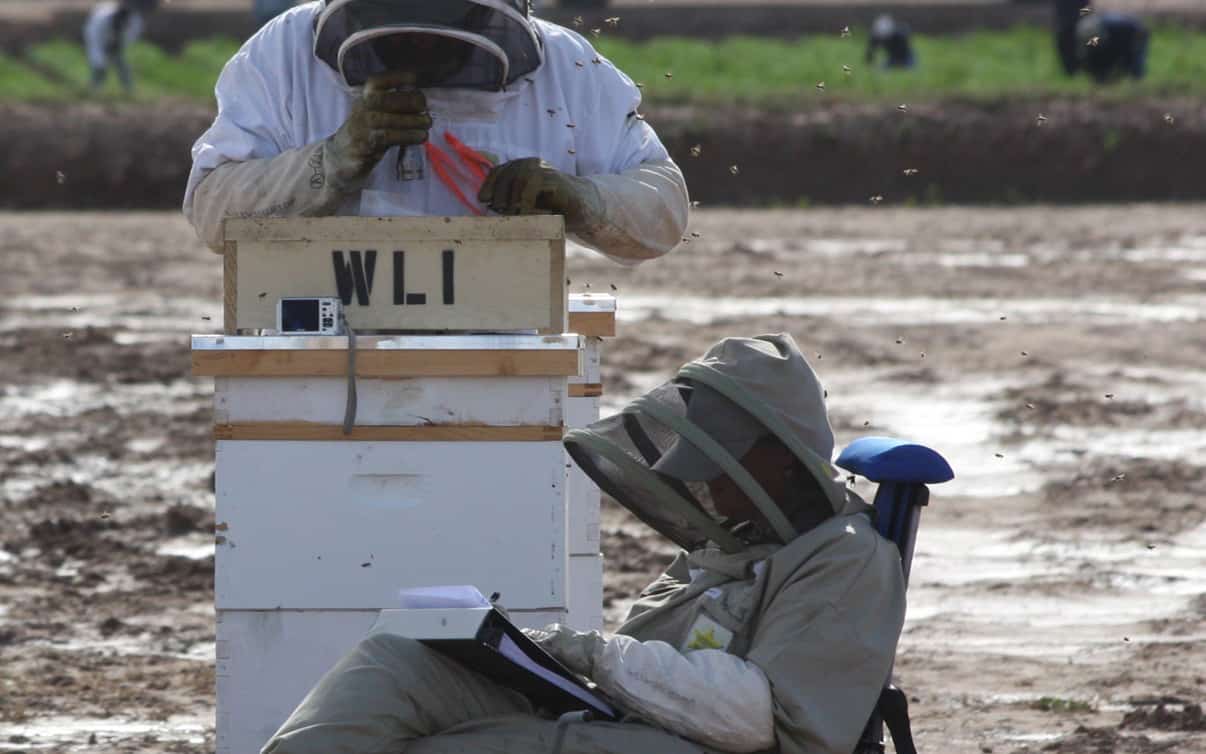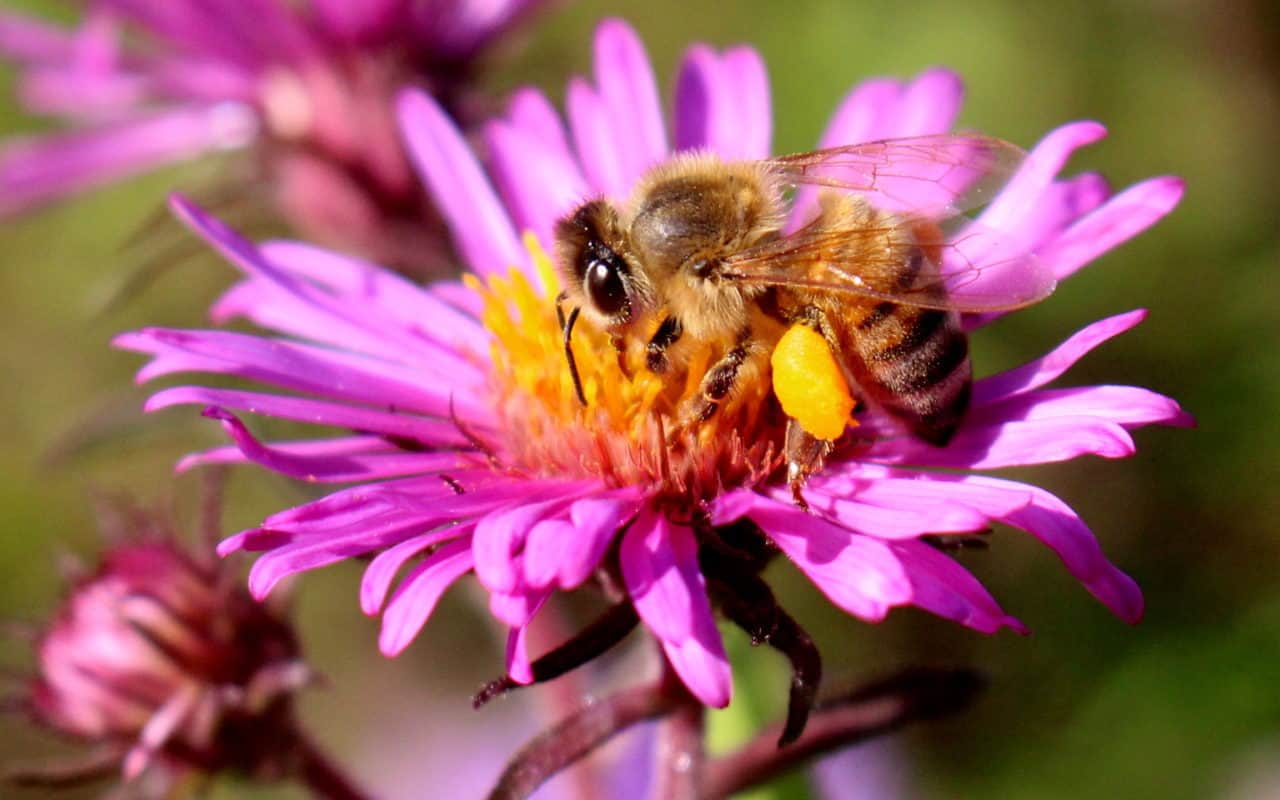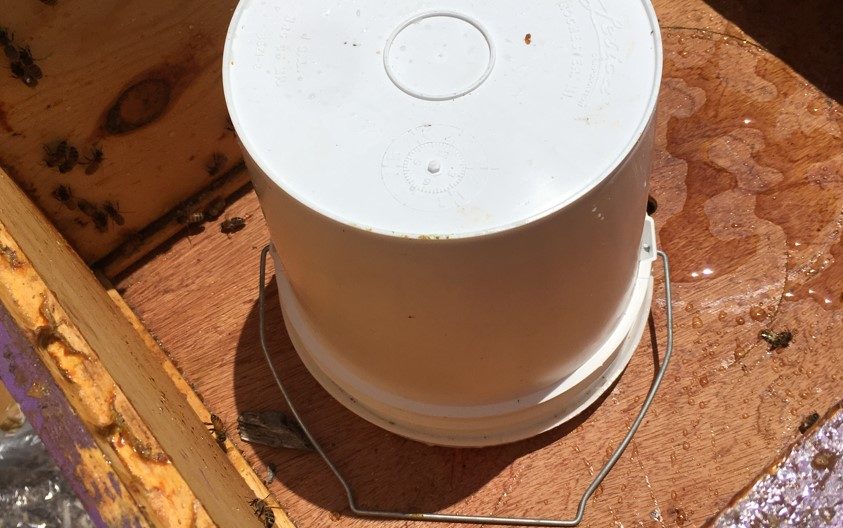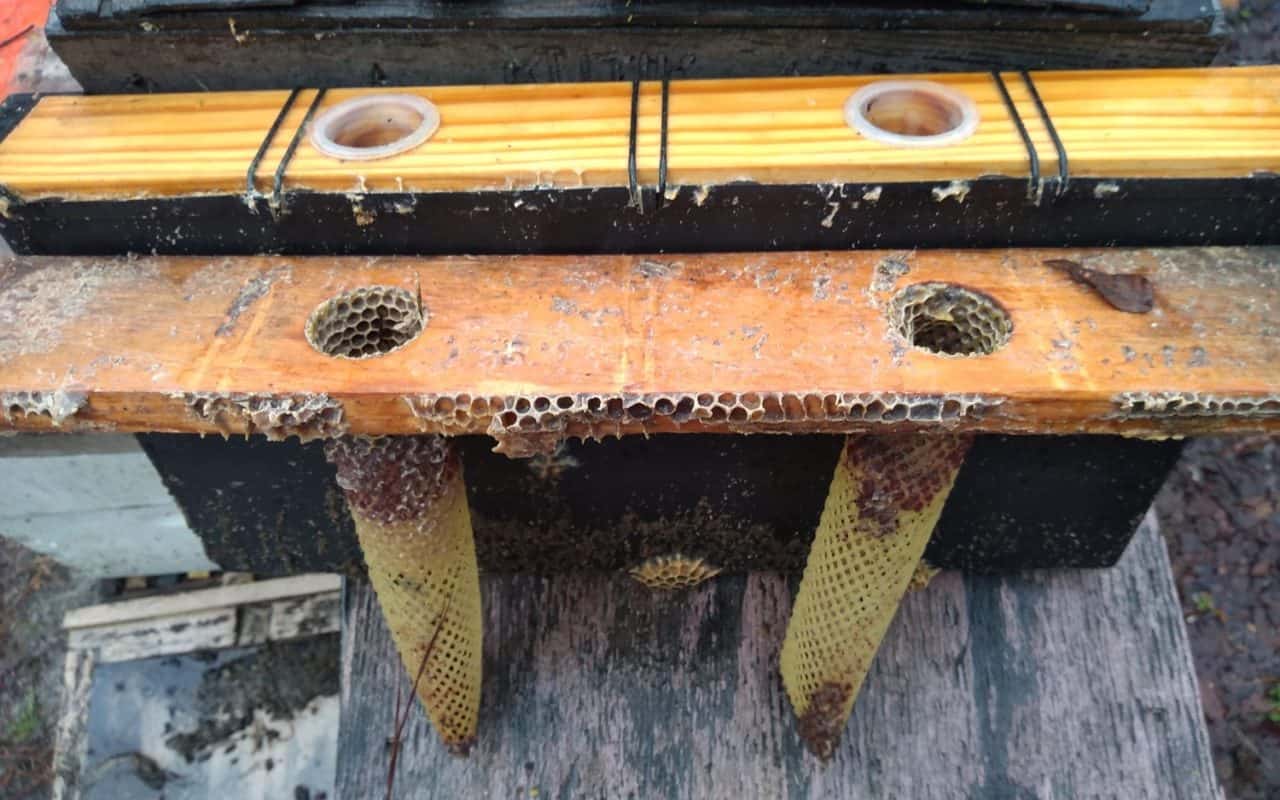Late summer is the time of year I start hearing about good honey crops. What most non-beekeepers do not realize is how much work goes into harvesting that honey. The first big step is to remove the bees from the honey supers. Beekeepers have several good choices for doing this task. Shaking/Brushing For hobbyists with a just few honey supers it may be easiest to shake and brush the bees off each frame back into the hive. Bring an empty super with a bee tight lid to put the brushed off frames in as you go along. You probably have a bee brush and an…
Category: Blog
The Bee Informed Blog is the place where team members convey their experience, knowledge, and opinions about their work with bees. Here is your opportunity to follow what’s happening in the field and lab.
The Great (Bee) Escape
Honey harvest is a point in the year that many beekeepers look forward to, as it is a chance to enjoy some of the tangible rewards of their (and their bees) hard work throughout the season. There are several methods of harvesting honey, but the common thread is they all involve separating the bees from the combs and supers containing the surplus honey to be taken. The most prevalent methods for large-scale operations are fume boards or leaf blowers, which allow many supers to be cleared of bees quickly. At a smaller scale, many beekeepers will remove bees from individual frames by shaking or brushing…
Hot off the press: BIP’s State Specific Colony Losses!
This blog comes to you from the Southern part of the U.S. - Alabama specifically - where beekeepers are currently sweating away as they diligently check their colonies for food and mites! They’re preparing for winter already! As you know, these past months has been unusual in many ways. For example, lots of beekeepers report difficulties finding sugar right now. Another example comes from the 2019/20 BIP Colony Loss Survey results. If you’ve read this year’s abstract or watched the news, you already know that we recently reported that beekeepers experienced the highest honey bee colony summer losses on record last year (2019). It was…
Idaho Honey Bees, Foraging Beyond Potatoes
What is the first thing that comes to mind when you think of Idaho? Did you think of potatoes? I would have, until I accompanied Ben Sallmann, BIP Pacific Northwest Tech Transfer Team Field Specialist, on a sampling trip to Idaho and Montana. I was struck by what this state has to offer honey bees and their beekeepers. It is no wonder they call it the ‘gem state’. According to the Idaho State Department of Agriculture, 20% of the state’s gross product comes from the agricultural sector, the single largest contributor to its economy. This production, of course, includes that of their famous potatoes, which…
Is High Fungicide Use Affecting Bee Health?
Every January and February, commercial beekeepers from every corner of the country send their bees to the California Central Valley to participate in the largest pollination event in the world – the California almond bloom. We (BIP’s tech team field specialists) follow these beekeepers from our respective regions to California to assess colonies and collect samples in the almond orchards. Having all of us in the field at one time, looking at bees from every corner of the country, gives us the opportunity to assess the pulse of the industry. We are also able to observe firsthand the conditions on the ground during the almond…
Preliminary Results of the 2019-2020 National Honey Bee Colony Loss Survey
This week marks National Pollinator Week, a time when we celebrate all the diverse animals out there that contribute to pollination. The western honey bee, the species used across the country to support food production, to provide a natural sweetener, and to quite simply contribute to our leisure and free time, is among the most important of pollinators. To mark Pollinator Week, the Bee Informed Partnership (BIP) recently released the results of its 2019-2020 National Honey Bee Colony Loss Survey. Results revealed some interesting insights into the experiences of our honey bee colonies, and their keepers, across the country this past year. From April 1st,…
Investigating Bees Via Pollen Analysis
The Bee Informed Partnership is fortunate to be active in both the bee science and beekeeping world, which leads to a lot of opportunities for collaboration and applied research. One of the recent ways in which this collaboration has come to fruition is an exploratory study looking at the potential to use trapped pollen from honey bee colonies as a means to: 1) look at the presence of heavy metals in the environment, 2) assess the degree to which the available pollen was able to meet colony nutritional needs, and 3) use laboratory techniques to assess pollen richness and diversity throughout the bloom period. This…
Feeding Bees – Gravity Feeders
The best method for feeding bees is a topic that most beekeepers have an opinion about, and of course they are all right. In this previous post I discussed the pros and cons of frame feeders for in-hive feeding. In this post we’ll go through gravity feeders, which are the other type of commonly used feeders. Hopefully the information in these posts will give you confirmation that you are using the right method for you and your bees or inspire you to try something different. Gravity style feeders are placed on top of hives and as you may have guessed, use gravity (in balance with…
Feeding Bees – Frame Feeders
Like most beekeeping topics, beekeepers tend to have their preferences when it comes to how they feed their bees. The two most common types of feeders used in hives are the frame feeder and the bucket or can (gravity) feeder. Both types of feeders have their merits and potential pitfalls, and beekeepers who elect to use one over the other often feel strongly about the choice. By looking at some of the arguments for and against each type, beekeepers can make a more informed choice on what type will best meet their needs and their bees’ needs. This post will run through the good and…
An extra couple of days to complete the BIP survey?! Excellent!
The Annual Colony Loss and Management Survey is extended until May 8th! Please take advantage of this last opportunity to complete the online survey, and also: Tell your beekeeping friends to do the same. Every answer counts. Don’t you worry though, we are not delaying our results. Expect to see our press release with the preliminary numbers coming out mid May! If you have taken the survey already: Thank you! We encourage you to share our message: Take the Survey Today and support BIP’s long-term colony loss monitoring efforts. May you have a good day, Your Friends at Bee Informed Partnership
